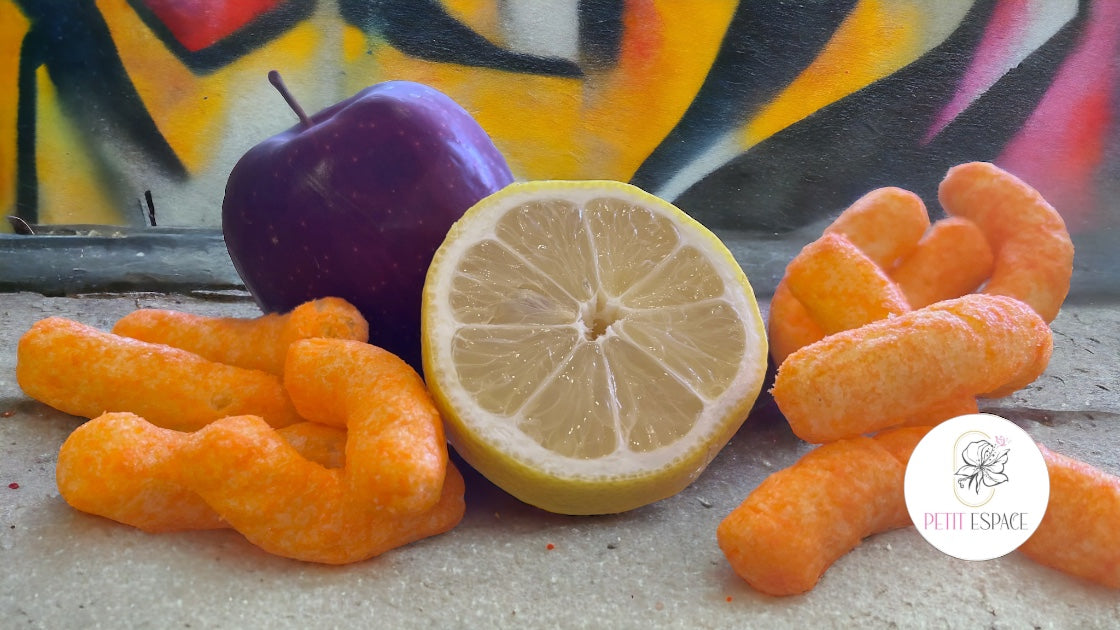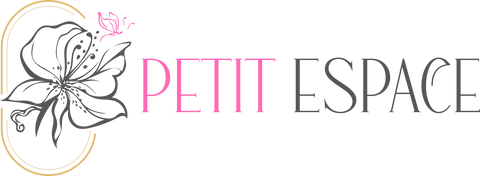Have a question? Reach out to us at: ceo@mypetitespace.com
Nourishing the Soul: A Journey with the Word "Food"

Nourishing the Soul: A Journey with the Word "Food"
Hello there my faithful reader. If you like what you are about to read or listen to please share it.
Welcome again to our word escapade. Today’s word is “Food.”
We have been talking about how our relationship with words shapes lives, behaviors, and perspectives. Words are the foundation of our communication and understanding. They influence our identities, beliefs, and interactions with the world. They not only reflect our thoughts and emotions but also shape them, guiding our decisions, shaping relationships, and determining our life paths. Words possess immense power, capable of inspiring, healing, provoking, and transforming. You can find additional blogs on our word escapade in our bio.
Have you ever stopped to think about the intricate dance most of us share with the word "food"? How does the language we use shape our relationship with this fundamental component of our existence? Are we nourishing our bodies or feeding our demons? It is interesting what you will discover exploring this multifaceted relationship.
The word “food” seems innocent but our relationship with food mirrors our deepest beliefs and emotions.
Mark Hyman one of the most influential figures in the fields of functional medicine, nutrition, and wellness once said, “Every time you eat is an opportunity to nourish your body”. This is the thing, how does our perception of food shape our experiences and well-being?
Are we approaching the act of eating with love and reverence, or are we trapped in a cycle of reward and punishment?
Let’s talk about body image. That is our perceptions, attitudes, and feelings towards our physical appearance, which could be our weight, shape, size, and overall attractiveness. Various factors including societal standards of beauty, cultural norms, media representations, personal experiences, and interpersonal relationships contribute to this puzzle. People may develop positive or negative body image based on how they perceive themselves in relation to these external influences, which can impact their self-esteem, confidence, and mental well-being.
It is important to think about our relationship with the word food because having a bad relationship with food and eating can manifest in various ways.
Some of us develop Emotional Eating, which is the practice of using food as a coping mechanism to deal with negative emotions, stress, boredom, or other psychological triggers. I have found myself devouring a bag of chips in minutes. Then I feel guilt and shame. If I don’t control the behavior, I fall into a cycle of overeating followed by restrictive behaviors, perpetuating an unhealthy relationship with food. As some of you may know, before the car accident that left me paralyzed, I was studying to be a classical ballerina. I was always very skinny up until the time I reached puberty. At that point, my body started to change. Being in front of a huge mirror in leotards did not help, especially when teachers emphasized the connection between the dancer and their bodies. My dad was also fixated on weight gain and my mother always meticulously controlled her eating habits, often dictating what others ate, and instilling a sense of guilt and shame around food. Between all this, I developed an unhealthy relationship with food and eating. I don’t suffer from any eating disorder, but I can engage in Emotional Eating and Restrictive Dieting occasionally, which is our next topic.
Restrictive Dieting involves adopting extreme or inflexible dietary restrictions, such as cutting out entire food groups or severely limiting calorie intake, to try to achieve rapid weight loss. However, this approach often leads to feelings of deprivation, an unhealthy fixation on food, and distorted body image perceptions. Additionally, restrictive dieting can result in nutritional deficiencies and a harmful cycle of bingeing and restricting.
During my journey, I enrolled in an eating program guided by a physiologist who stressed the importance of balanced nutrition while still enjoying the foods we love. Over six months in the program, I experienced weight loss and improved well-being. However, maintaining the regimen was difficult because it required dedicating entire Saturdays to meal preparation for the week, which proved undoable for me in the long term.
This experience showed me that being ready for change is super important when you're trying to switch up your eating habits. I mean, I want to eat better, but sometimes I wonder if and when I will be ready for a big change like that.
Moving forward, let’s try together to embrace two life adjustment behaviors and reframe our relationship with food and eating.
Life-Adjustment # 1: Let’s work on Mindful Eating Habits: Just as we approach our work with intentionality and focus, let’s adopt mindful eating habits to reconnect with the true essence of food. Slow down, savor each bite, and pay attention to the flavors, textures, and sensations that unfold with each mouthful. I’m preaching to myself because I devour my food. I must consciously think about a mindful approach to eating. Somedays my friend, I’m successful and others not so much. But I will keep trying, giving up is not an option.
Life-Adjustment # 2: Embrace a Balanced Approach to Nutrition: Much like finding balance in our professional and personal lives, let’s try to prioritize a balanced approach to nutrition that honors both physical nourishment and soulful indulgence. Instead of labeling foods as "good" or "bad," let’s aim for variety, moderation, and flexibility in our diet. In the program I mentioned I was taught to enjoy my favorite treats without guilt while also feeding my body with wholesome, nutrient-rich foods. The secret? Embrace balance, that will liberate us from the confines of restrictive eating habits and cultivate a healthier relationship with food.
Yes, it’s easier said than done. But change is a journey. The important point is not to beat ourselves up once we take a step back, but to be determined to pick up where we left off.
In our journey exploring the word "food" and its profound impact on our lives, let us heed the wisdom of words and recognize the transformative power of perception. By adopting mindful eating habits, embracing a balanced approach to nutrition, and developing a positive body image, we can transform our relationship with food from one of struggle to one of nourishment and vitality.
PS: Do you like this blog? Please share it and check out Mon Espace+ on Petit Espace's website www.mypetitespace.com, our rapidly growing platform of self-care collaborators. With our community of like-minded individuals, you'll have access to a wealth of resources, support, and inspiration to help you on your journey. And don't forget to check out my corner in the Self-Help Category - Your Upward Journey: It's Easier Than You Think! with my informal guidance, you'll be well on your way to becoming the best version of yourself.
← Older Post Newer Post →
Recent Post
Plowing Through E...
The Gift of Livin...
Rest and Health: ...
Archive
- July 2024
- June 2024
- May 2024
Tags
- #BrainTraining #Neuroplasticity #MindTransformation #BelieveInYourself #ReprogramYourMind #PositiveChange #MeditationBenefits #SleepHealth #PersonalGrowth #ChallengeYourself
- #Compartmentalize #TraumaHealing #EmotionalWellness #SelfDiscovery #Resilience #CopingStrategies #MentalHealthAwareness
- #Faith #TransformativePower #PersonalGrowth
- #Food #HealthyEating #MindfulLiving #Balance
- #Friendship #Authenticity #Boundaries #Vulnerability #Relationships #EmotionalSupport #PersonalGrowth #Trust #SelfReflection #HealthyFriendships #SocialAnxiety #Connection #FriendshipGoals #TransformativePower #FriendshipJourney
- #HealingJourney #EmotionalLiberation #Mindfulness #ActiveListening #Forgiveness #InnerPeace #SelfGrowth #PositiveChange #PersonalDevelopment #WeekendReflection
- #LifeBalance #EmbraceDichotomy #JoyAndSorrow #FindMeaning #GratitudeJourney #BeautyAndPain #LifesComplexity
- #LifeBalance #SelfCare #WorkLifeBalance #Priorities #FamilyFirst #Reflection #Mindfulness #Harmony #PersonalGrowth #WeekendReflections
- #metime #selfcare #wellnessjourney #selfdiscovery #prioritizeyourself #passionpursuit #soloadventures #mindfulness #weekendvibes #rejuvenation #sparkreignited #intentionalliving
- #Positivity #Mindfulness #Gratitude #Happiness #Optimism #SelfImprovement #PositiveThinking
Custom Menu

- 2023 Petit Espace ©
- Terms and Conditions






Leave a comment